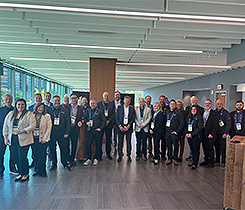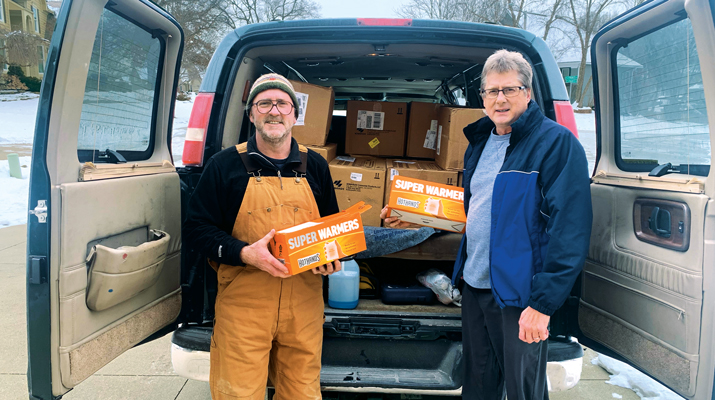GAO pans pipeline safety efforts
Efforts to improve pipeline safety have failed to reduce the number of serious accidents, and the Office of Pipeline Safety hasn’t established effective goals or measure success, according to the Government Accountability Office (formerly the General Accounting Office).
 Charles Pekow, Washington Bureau |
GAO says it can’t measure the organization’s safety strategy for lack of data. OPS plans to unveil a policy next year, but “has not adopted key practices for achieving successful performance measurement systems, such as linking measures to goals,” GAO reports in Pipeline Safety: Preliminary Information on OPS’ Enforcement Activities.
Since 2000, OPS has beefed up enforcement. It increased the number and size of civil penalties. Since then, it averaged 22 fines a year, compared with 14 in the previous five years.
The average penalty increased from $18,000 to $29,000. But OPS “has not yet developed a policy that defines this new, more aggressive enforcement strategy or describes how it will contribute to the achievement of its performance goals,” GAO charges.
While the rate of serious accidents has decreased, GAO couldn’t find a consistent pattern to tie it to OPS efforts. OPS has been enforcing integrity management standards for two years, but the agency “does not yet have guidelines in place for enforcing these standards or implementing the new authority provided in the act,” GAO maintains.
OPS assessed fines in only 14 percent of 1,530 enforcement actions in the last decade, preferring to require operators to fix problems and improve procedures.
“Although OPS has increased both the number and the size of the civil penalties, the effect of this change on deterring noncompliance with safety regulations, if any, is not clear. The stakeholders we spoke with expressed differing views on whether the civil penalties deter noncompliance,” GAO states.
Some operators said all enforcement actions, including fines, encouraged compliance. But others didn’t, saying factors such as bad publicity, potential lawsuits and the need for good customer service provided greater safety incentives.
In 31 percent of cases, OPS reduced proposed fines but it doesn’t routinely record why it cuts the penalties. Officials say reasons include a finding that the inspectors judged too harshly or the pipeline changed hands.
OPS’ uses performance measures including counting the rates of accidents and amount of fuel spilled per million ton-miles shipped; and the number of inspections and investigations. It is also considering measures of the time it takes to complete enforcement, corrective actions operators take and changes in the percentage of operators with particular deficiencies.
In a companion report, GAO charges that OPS doesn’t even routinely inform its collection agent about penalties, though it collects about 94 percent of them. It collected about $3.7 million between 1994 and 2003 while $836,700 remains unpaid with no explanation why.
“We do have an enforcement plan in place,” responded OPS Spokesperson Damon Hill. “It is not all about issuing more civil penalties. It’s more about how we as an enforcement or oversight agency can establish proactive guidelines to implement today so we can see results tomorrow . . . It will take some time for the results to actually be seen.”
Briefly Speaking
Notes from Capitol Hill
- On-board recording devices
The Federal Motor Carrier Safety Administration plans to issue regulations on the use of on-board recording devices to document compliance with federal hours-of-service rules. FMCSA is seeking comments on the matter through Nov. 30.
- Driver background checks
The Transportation Security Agency has delayed the compliance date for rules on background checks for applicants seeking hazmat endorsements on commercial drivers licenses. Initially slated to begin last April, states won’t have to require TSA checks until Jan. 31.
















